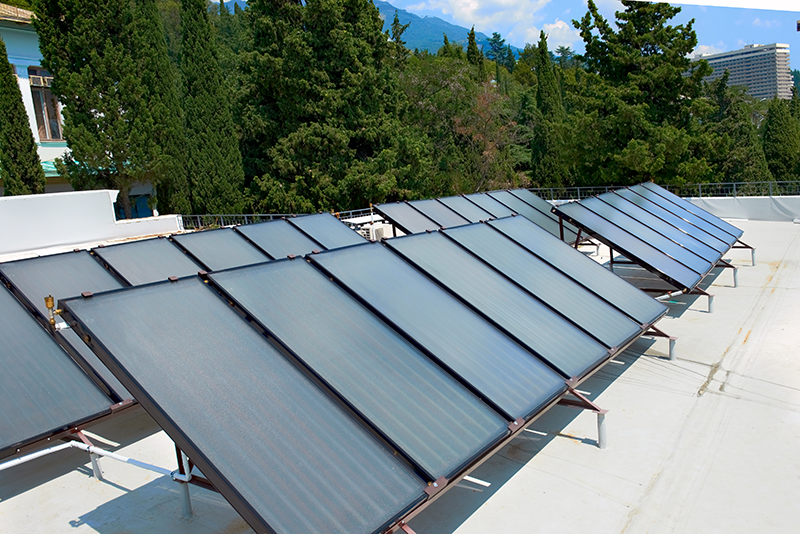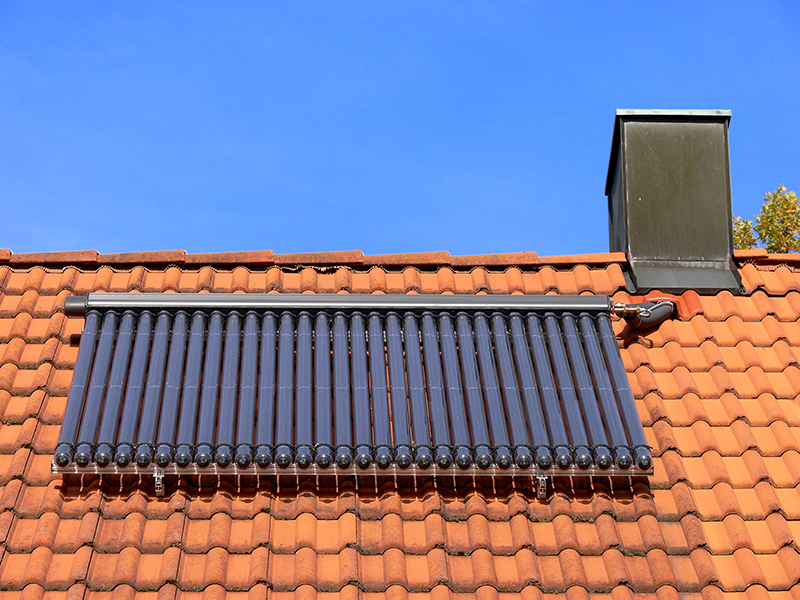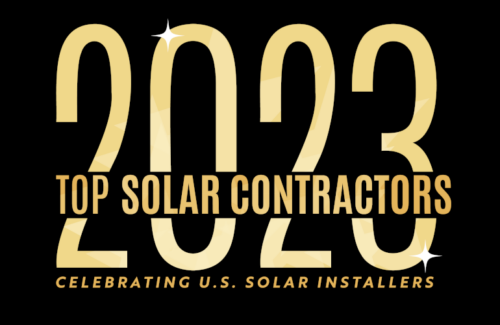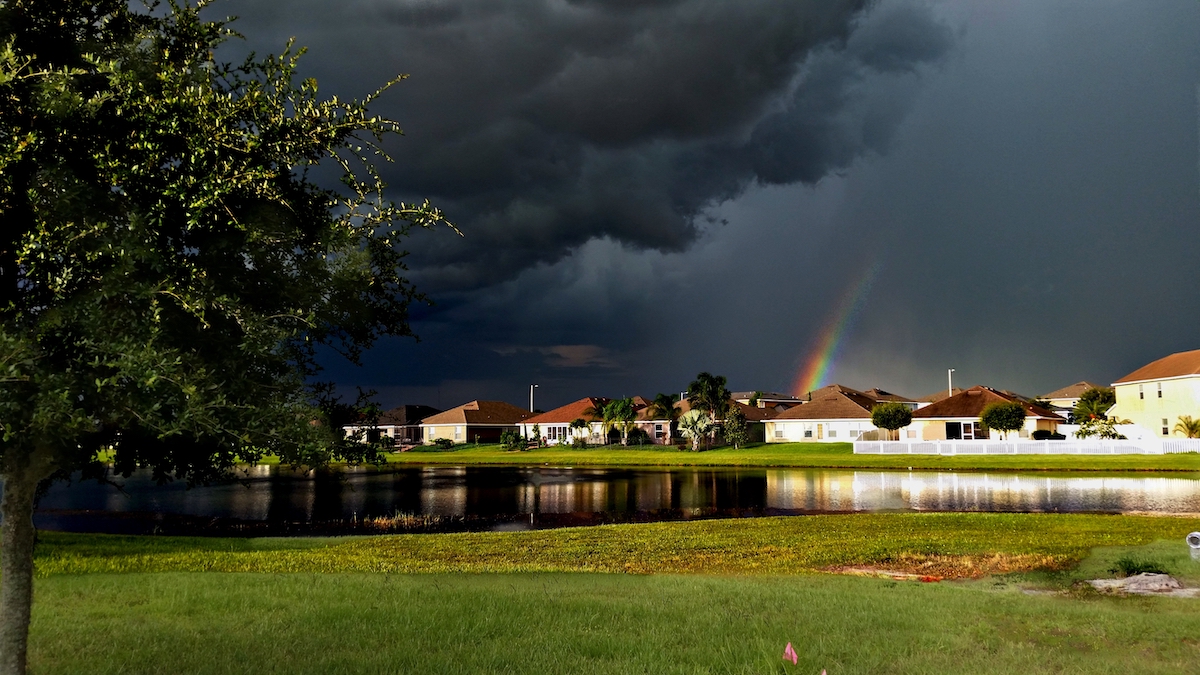ICS systems are sometimes called batch systems. Black tubes or tanks are in a waterproof box to preheat water with solar energy. Heated water exits the ICS collector and enters a backup water heater.
Evacuated-tube solar collectors use special glass tubes, metal tubes, and fins to absorb solar energy and reduce heat loss. The evacuated-tube collector system relies on the vacuum created between the glass and metal tubes to retain heat.
All three types of solar energy collectors rely on water storage. Solar energy systems are either active or passive, regardless of the collector type.
2. Active Solar Systems Use Pumps
In an active solar water heater system, pumps move water or a heat-exchange fluid from the water storage area, through the collector, and back to your household plumbing system. Your water storage is located inside your home.
Heat exchange fluids are best if you live in an area with freezing winters. Propylene glycol or another approved liquid goes up to the rooftop heat collector and then down through pipes in your hot water tank to heat the water.
If you live in an area where freezing is not an issue, household water goes directly up to the collector and directly back down into a hot-water storage tank or your plumbing pipes. Some building codes require you to use a conventional water heater as a backup appliance and water storage unit.
You need a power source to provide energy for your water heater pump in an active system. Solar panels can produce enough energy to run most types of residential pump systems.
3. Passive Solar Heaters Need No Pumps
The simplest type of solar water heater system is a passive system. No energy, electrical components, or extra solar panels are necessary to operate the system.
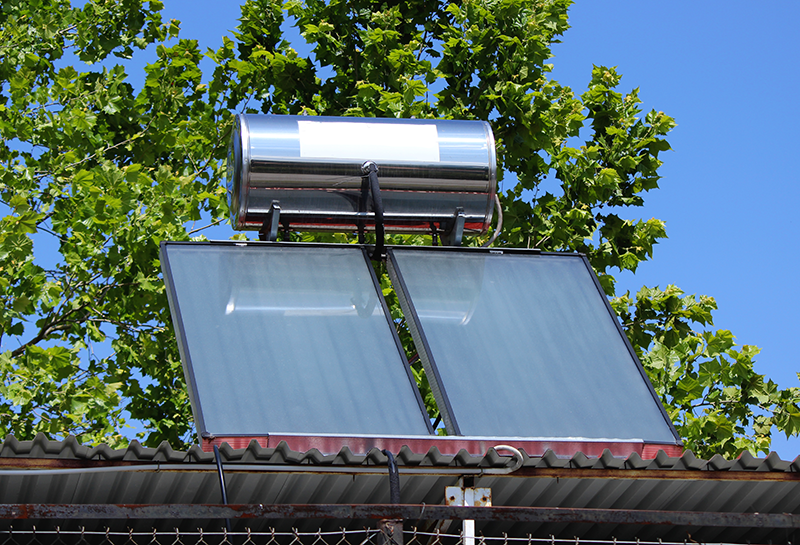
A passive hot water system relies on a large tank that sits on top of your roof. The sun heats the water directly, and the force of gravity sends the water down to your hot water storage. As with an active solar heating system, local regulations and codes may require you to have a conventional water heater for auxiliary hot water.
The active solar water heater system is more expensive than the passive solar hot water system. However, active systems are more reliable than passive systems. You may also need to invest in structural enhancements on your roof to hold a heavy passive water tank.
4. Solar Water Heaters Offer Many Benefits
Regardless of your solar water heater type, expect to save between 50 and 80 percent on the cost of heating your hot water. Your solar provider can help you calculate the actual operating costs of your system, which will vary depending on whether your auxiliary system uses gas or electricity to heat the water.
One figure that determines the efficiency of your solar water heater system is its solar energy factor. To find the figure, divide the gas and/or electric energy used by the system into the total energy delivered by the solar components. The higher the number, the more efficient the solar water heater system.
Solar water heaters cost between $2,000 and $6,000 to install. Although a solar heater is more expensive than a conventional water heater initially, an efficient passive or active solar system pays for itself over time. Meanwhile, you have produced your own hot water with clean, sustainable power.
Solar hot water systems offer a hedge against rising energy costs and fuel shortages. Passive systems produce and deliver water to your household even when you have storm-related power outages. Some systems qualify for rebates or tax incentives.
Schedule the installation of your new solar water heater system in Largo, Florida, by contacting Solar Source today. We offer a variety of custom solar water heating systems for residences throughout the Tampa Bay region. If you have any questions or concerns about solar water heaters, we will be more than happy to address them. We also can provide answers about which solar water heater is right for you.
